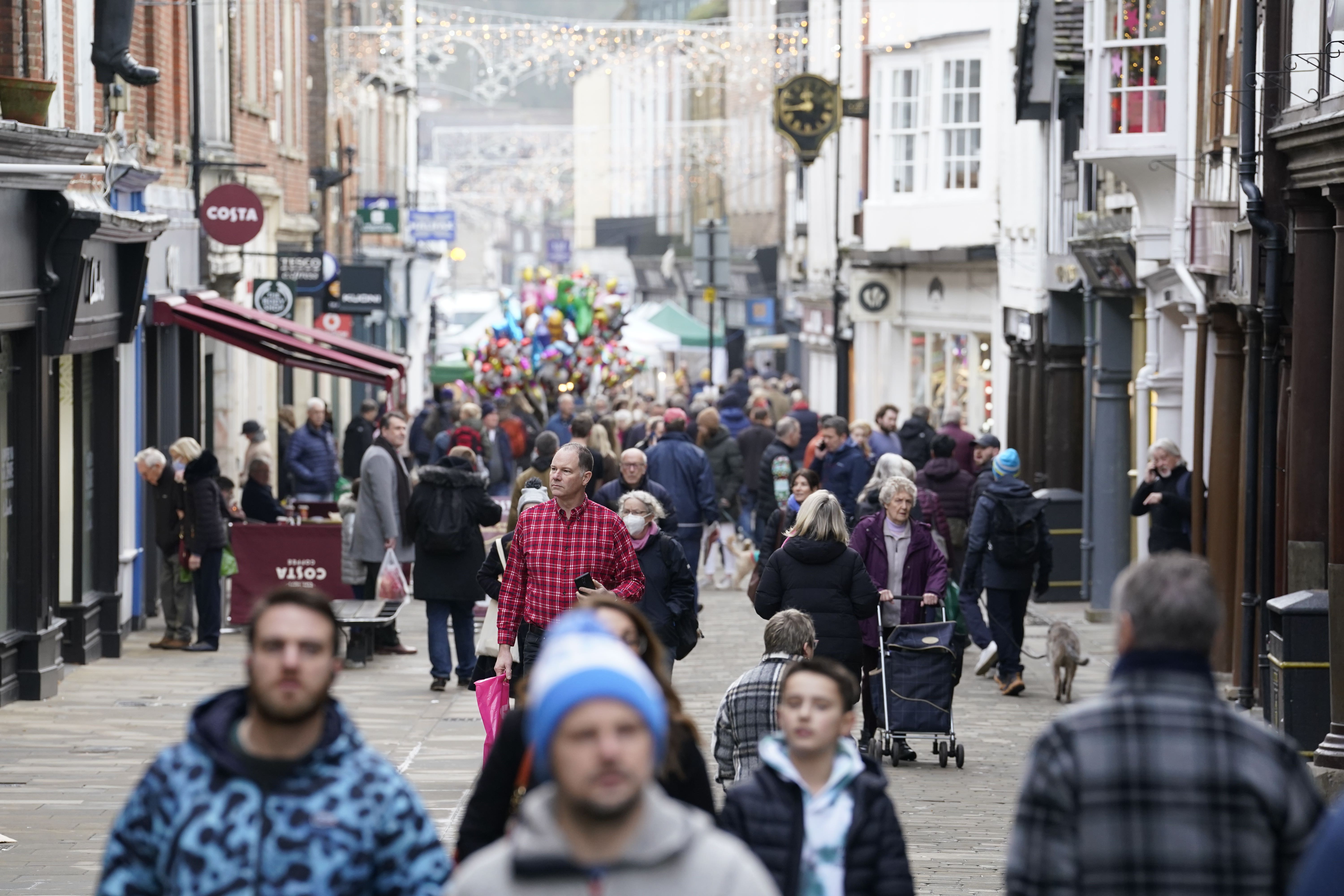March delivers ‘sharp shock’ to retailers amid consumer cost-of-living woes
Footfall across all UK retail destinations fell by 2.8% on the month before – a significant drop from the 9.4% increase seen in February, data shows.

Your support helps us to tell the story
From reproductive rights to climate change to Big Tech, The Independent is on the ground when the story is developing. Whether it's investigating the financials of Elon Musk's pro-Trump PAC or producing our latest documentary, 'The A Word', which shines a light on the American women fighting for reproductive rights, we know how important it is to parse out the facts from the messaging.
At such a critical moment in US history, we need reporters on the ground. Your donation allows us to keep sending journalists to speak to both sides of the story.
The Independent is trusted by Americans across the entire political spectrum. And unlike many other quality news outlets, we choose not to lock Americans out of our reporting and analysis with paywalls. We believe quality journalism should be available to everyone, paid for by those who can afford it.
Your support makes all the difference.March delivered a “sharp shock” to retailers as consumers reined themselves in to cover essential shopping in the face of spiralling cost-of-living pressures.
Footfall across all UK retail destinations fell by 2.8% on the month before – a significant drop from the 9.4% increase seen between January and February, according to MRI Springboard.
Meanwhile, footfall on UK high streets was down 18.7% on 2019 levels and 0.6% below last March.
MRI Springboard said inflationary pressures and interest rates had led to consumer trips now being driven by essential shopping, demonstrated by an annual decline in footfall of 1.4% across UK high streets at the weekend – the first month ever this has occurred.
For many consumers a period of austerity has started, with the driver of trips now being essential spending rather than experience as many consumers rein in leisure-based trips to destinations to reduce their spending
Diane Wehrle, marketing and insights director at MRI Springboard, said: “March delivered a sharp shock to UK retail destinations with a decline in footfall of 2.8% over the month from February to March, a result that had not been anticipated following an increase in February that more than matched the result for February in previous years.
“For many consumers a period of austerity has started, with the driver of trips now being essential spending rather than experience as many consumers rein in leisure-based trips to destinations to reduce their spending.”
Separate figures from accountancy and business advisory firm BDO confirm inflation and a dip in spending hit sales in March.
Total like-for-like retail sales increased by 4.1% on last March, and the fashion sector suffered a slowdown in sales growth, marking its lowest point in more than two years.
Retailers were disappointed by weak growth in online sales, with total non-store like-for-likes increasing by just 2.8% from last March’s negative base of minus 10.8%.
Consumers simply have much less money to treat themselves because of increasing prices for essentials, which is therefore taking a bigger slice of their purse and reducing their spending power on discretionary spend categories such as fashion, homewares and lifestyle products
Sophie Michael, head of retail and wholesale at BDO, said: “Across the board, inflation is above 10%, and for food it now stands at a staggering 18%.
“This is eating into consumers’ discretionary spending and is bad news for the fashion, lifestyle and homewares sectors, as we can see in the March retail sales results.
“Consumers simply have much less money to treat themselves because of increasing prices for essentials, which is therefore taking a bigger slice of their purse and reducing their spending power on discretionary spend categories such as fashion, homewares and lifestyle products.”
Simon Francis, co-ordinator of the End Fuel Poverty Coalition, which is part of the Warm This Winter campaign, said: “When businesses suffer from high energy prices, the public suffers too as the impact of higher running costs have to be passed on to the customers.
“The UK Government’s failure to fix Britain’s broken energy system has left businesses in trouble and the trickle down impact of this will be reduced consumer spending on our high streets as even more money ends up in the hands of multimillion pound profit-making energy firms.”